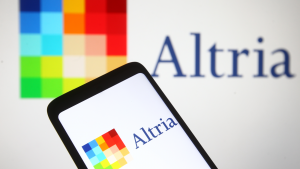Tobacco stocks have a bad reputation. Investors with a particular set of ethics tend to veer away from them because the companies’ products are known to be detrimental to people’s health. However, if you take an objective view, buy-rated tobacco stocks can be good investments. That’s because, though not strictly considered as consumer essentials, tobacco products remain in massive demand despite wide-scale pushback.
Many tobacco companies are also pivoting toward less damaging forms of their products. That’s not to say that tobacco products are safe — not at all. Many countries and assemblies, including the United Nations, consider tobacco use one of the biggest public health threats in the world.
Still, the effort should be recognized — as should the potential returns for investing in tobacco stocks. Such is the nature of business.
So, today, I’ll take an impartial look at three of the top tobacco stocks to see if they’re worth your consideration.
To generate this list, I screened the market for tobacco stocks with the following criteria:
- Buy ratings from analysts and
- Positive net income growth in their last annual report.
Then, I sorted the results based on the highest to lowest net income growth. Here are the results:
Turning Point Brands (TPB)

Known for its Clipper brand lighter and distributor of alternative smoking accessories and consumables, Turning Point Brands (NYSE:TPB) offers various smoking-related products in its various product segments, like:
- Zig-Zag segment: cigars, rolling papers and other related products.
- Stoker segment: chewing tobacco, moist snuff (smokeless) tobacco.
- Creative Distribution Solutions segment: nicotine-related products.
In FY23, Turning Point experienced a slight decline in consolidated net income and gross profit. This was primarily due to a low single- to double-digit decrease across all segments. Adjusted EBITDA also decreased by 2.4% year over year to $95.3 million.
However, despite slightly lowered sales, the company’s net income increased by 230.4%. Turning Point expects 2024’s adjusted EBITDA to end between $95 million and $100 million, signifying further optimism.
“Our outlook for 2024 is positive,” says President and CEO Graham Purdy, “ as we expect solid growth in our Zig-Zag and Stoker’s Products businesses.”
Analysts share that positive sentiment, as they rate TPB as a member of the “tobacco stocks to buy” list.
Altria Group (MO)

Known as the owner of some of the tobacco world’s household names, Altria Group (NYSE:MO) is a holding company that owns brands like Marlboro cigarettes, Black and Mild cigars and other tobacco-related products through its subsidiaries.
The company has also ventured into other segments in the smoking category besides traditional tobacco, like the e-vapor product under its subsidiary NJOY and nicotine pouches under the U.S. Smokeless Tobacco Company. Altria recently sent the premarket application for NJOY Ace 2.0, which includes access restrictions via Bluetooth to prevent underage use of the product via authentication.
Altria is pivoting to smoke-free products, and the change slightly affects its financial performance. Increased excise taxes aren’t helping, either. FY’23, the company reported a 2.4% YOY decline in net revenues.
Despite that, diluted EPS increased by 43.3%. The company is also expanding NJOY’s global presence to match anticipated volume demands for e-cigarettes and related products.
Analysts rate MO stock as a buy, which indicates confidence in its prospects. The company is also a noted Dividend King, with 58 consecutive dividend increases in the past 54 years.
In addition, MO stock pays a $3.92 forward annual rate, translating to an impressive 8.77% yield, making it one of the best tobacco stocks to buy.
Vector Group (VGR)

Holding companies often own various businesses, and Vector Group (NYSE:VGR) is no different. It owns Liggett Vector Tobacco and Liggett Group, which operates in the tobacco sector. The subsidiaries offer discount cigarettes, including Eagle 20s, Montego, Grand Prix, Pyramid, Liggett Select and more.
The company also dabbles in real estate through its third subsidiary, New Valley. Its portfolio includes condominiums, hotels and commercial properties.
Vector Group’s consolidated tobacco revenue for FY’23 saw a miniscule decrease at 0.1% YOY. However, net income increased to $183.5 million from $158.7 in 2022.
Its various products, particularly Montego, also registered increased market shares. According to the company, Montego remains the largest discount brand in the U.S. President and CEO Howard M. Lorber was quite happy with the results, which remained relatively positive despite a “dynamic operating environment.”
Two analysts rate VGR stock as a strong buy, making a clear case for why investors should consider it for their tobacco stocks to buy shortlist.
On the date of publication, Rick Orford did not have (either directly or indirectly) any positions in the securities mentioned in this article. The opinions expressed in this article are those of the writer, subject to the InvestorPlace.com Publishing Guidelines.
